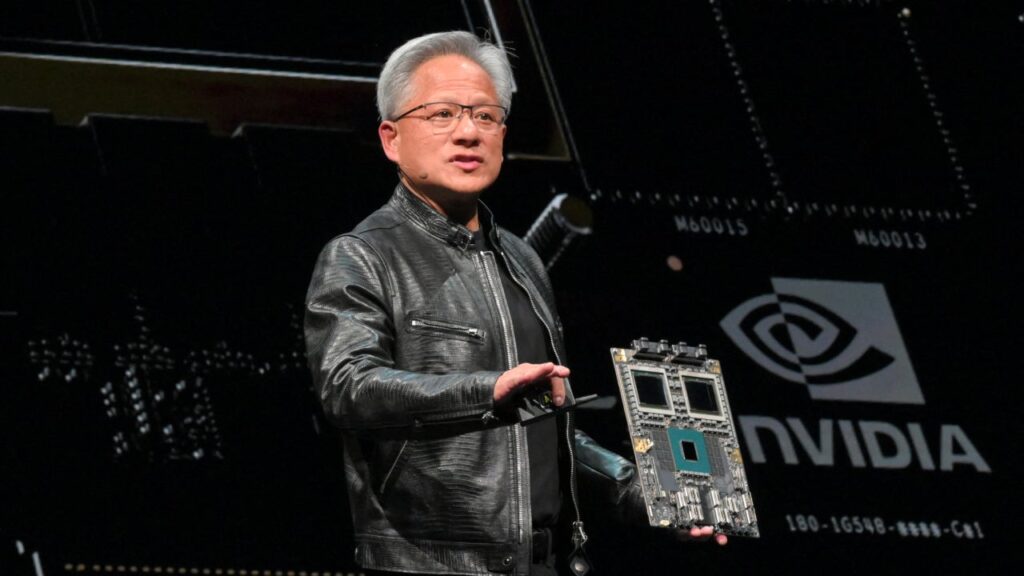The salaries of chief executive officers continue to climb, with CEOs at major companies seeing a median payout of $15.7 million in 2023, a record high according to the Wall Street Journal. This marks an increase from the previous year’s median compensation of $14.5 million in 2023.
Here we delve into the highest-paid CEOs, the unique nature of their compensation, and how investors can leverage CEO pay to make informed investment decisions.
The Top-Paid CEOs in America and Their Compensation Structure
Covering the past decade, CEO compensation in America has surged significantly, with median pay soaring from $7.39 million in 2013 to $15.71 million in 2023. Last year, most CEOs received pay hikes of 9% or more, with 25% of them enjoying a 25% increase, as reported by MyLogIQ.
So who were the top-earning CEOs in 2023? Here are the top five, along with a breakdown of their compensation:
- Hock Tan, Broadcom: $160.5 million in equity, $1.2 million in cash
- Nikesh Arora, Palo Alto Networks: $145.4 million in equity, $2.3 million in cash, $3.8 million in other compensation
- Stephen Schwarzman, Blackstone: $119.4 million in other compensation
- Christopher Winfrey, Charter Communications: $83.7 million in equity, $5.2 million in cash
- Will Lansing, Fair Isaac: $64.3 million in equity, $2.0 million in cash
It’s evident that a significant portion of the highest-paid CEOs’ annual compensation comes from equity rather than traditional cash payments. For instance, Broadcom CEO Hock Tan received less than 1% of his total compensation in cash in 2023.
Equity compensation constituted approximately 65% of the median total pay for the top 100 CEOs analyzed by Equilar, an executive intelligence firm.
This emphasis on equity awards underscores a key aspect of CEO compensation—its sporadic nature. CEOs may receive special payouts tied to corporate targets, achieving specific goals, or reaching a particular tenure with the company. Consequently, the list of top earners often sees turnover, with new faces emerging each year.
For example, Fair Isaac’s Will Lansing benefited from a one-time $30 million equity grant for retention and leadership over a five-year period.
Nevertheless, some CEOs at major companies consistently rank among the top earners year after year:
- Apple CEO Tim Cook ranked 2nd in 2023 and 6th in 2023, according to Equilar
- Microsoft CEO Satya Nadella secured the 6th spot in 2023 and the 9th spot in 2023, as per Equilar
- Broadcom CEO Hock Tan placed 4th in 2023 and claimed the top spot in 2023
Many executives receive higher equity bonuses if the company’s stock performs well. This alignment with shareholder interests can be beneficial from a governance perspective if structured appropriately, but it can also result in exceptionally large pay packages for executives in a given year.
Equity compensation can also offer long-term benefits, as CEOs stand to gain from continued stock appreciation in subsequent years. Nvidia CEO Jensen Huang, for instance, has seen his equity compensation rise significantly due to the company’s success in the semiconductor industry.
CEO compensation differs from average worker pay not only due to the substantial amounts involved but also because of its unique structure.
Utilizing CEO Compensation for Informed Investing
Beyond mere fascination or criticism of these lavish pay packages, analyzing CEO compensation can provide valuable insight for investors seeking to predict stock performance.
One effective approach is to scrutinize CEO pay packages to understand what they are incentivized to achieve. The compensation structure can serve as a useful indicator of a CEO’s behavior and decision-making tendencies:
- CEOs may be incentivized based on financial metrics that may not align with investors’ best interests. Some executives are rewarded for growing the company at any cost, regardless of its impact on the company or shareholders.
- Executives may receive compensation tied to stock performance, motivating them to take actions that boost the stock price—a positive signal for investors.
- CEOs may be rewarded for divesting or spinning off a division, signaling potential strategic moves that investors can anticipate.
- Companies that grant performance-based compensation to CEOs irrespective of actual performance may not be ideal investment opportunities.
- CEOs earning disproportionately high pay relative to the company’s profits could indicate a potential lackluster investment until management changes occur.
Investors can review CEO compensation details in a company’s annual proxy filing on Form DEF 14A, typically accessible through major brokerage research resources.
Conclusion
While these generous pay packages are typically reserved for CEOs, ordinary investors can still benefit from the success of top-performing stocks. Understanding the structure of a CEO’s compensation can offer valuable insights into stock performance and executive decision-making.

